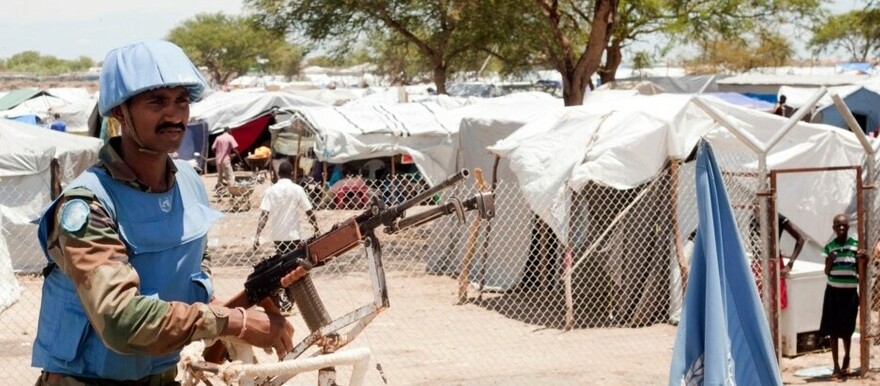The United Nations Mission in South Sudan (UNMISS) has deployed additional peacekeepers and launched urgent patrols to two conflict hotspots of Jonglei and Kapoeta East County, Special Representative of the Secretary-General and Head of UNMISS, Nicholas Haysom has said.
In a Tuesday statement extended to Radio Tamazuj, Haysom said this follows fresh inter-communal violence, which resulted in deaths of civilians, abduction of women and children, and mass displacement of vulnerable communities.
“In Jonglei, on 26 April, a group of armed youth from the Greater Pibor Administrative Area (GPAA) launched a significant attack on cattle keepers across the border in Kapoeta East County in Eastern Equatoria. Efforts are underway to verify the number of casualties, but preliminary reports indicate a significant number of people were killed, many women and children were abducted, and hundreds of cattle stolen,” his statement read in part.
He added, “To help deter further violence, UNMISS sent a special flight to Marwa to support the engagement of the GPAA Chief Administrator with local leaders and the community. UNMISS urges the GPAA authorities to recover all those abducted and reunite them with their families as well as to impose rule of law to prevent further incidents. The mission is supporting this process and wider efforts to de-escalate tensions. On the Eastern Equatorian side, UNMISS facilitated a visit to the site of the attack in Kauto payam by the State Governor and other officials to assess the situation, verify casualties, and help restore calm.”
Haysom said, in Tambura in Western Equatoria, tensions between communities from different ethnic backgrounds are high following a series of incidents, including the killing of civilians, disappearance of a priest who is a member of the Tambura peace committee, and the torching of homes.
He further said this happened despite fears of further violence rise even as it indicated that more than 13,000 people have sought sanctuary at a displacement camp outside the mission’s temporary base while 4000 civilians have arrived at another such site in Tambura town.
In response, UNMISS dispatched an additional 76 military peacekeepers to reinforce the Tambura temporary base, protect displaced families, and boost patrols in the surrounding area. The mission says it is also engaging with political actors and community leaders at the local and national levels to reduce tension and restore calm.
“Despite the on-going fuel blockade, which is threatening UNMISS’ ability to carry out our work, we are doing our utmost to help protect civilians caught up in intercommunal conflict and prevent further violence,” his statement read further.
“We urge the government to ensure that the UN can continue to work without impediment to help protect civilians, support the safe delivery of humanitarian aid to vulnerable communities, and progress the development of institutions, infrastructure, and critical services across the country,” it concluded.




